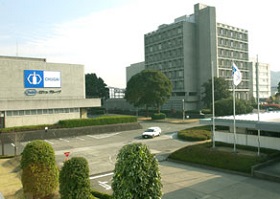Tokyo-based Chugai Pharmaceutical and research partner PharmaMar have announced that their investigational new multiple myeloma drug that has been developed from a marine animal significantly increased survival in certain patients.

Chugai's Tokyo headquarters
The Japanese company, which is majority owned by Switzerland's Roche ($RHHBY), announced that its Phase III clinical trial of Aplidin (plitidepsin) with dexamethasone--versus dexamethasone alone--in patients with relapsed/refractory multiple myeloma met its primary endpoint after posting a statistically significant extension in PFS when compared with dexamethasone alone.
In fact the data show that the treatment reduced the risk of progression or death by 35%.
The study was conducted by its partner for the drug, the Spanish cancer specialist PharmaMar. Chugai bought promotion rights of Aplidin for the treatment of multiple myeloma in 8 European countries in a tie-up with PharmaMar back in 2014.
"This is a positive step forward for our shared vision with PharmaMar to introduce a new treatment for relapsed multiple myeloma and we are confident that Aplidin's mechanism of action and strong supporting data will lead to a successful introduction of this novel drug for the benefit of patients," said John Halls, managing director of Chugai's European business.
Chugai has had a good quarter when it comes to cancer trials as in February a Phase III trial for its lung cancer drug Alecensa (alectinib) was stopped early as the drug met its primary endpoint and showed that patients were living "significantly longer" with the treatment when compared to Pfizer's ($PFE) marketed drug Xalkori (crizotinib).
Aplidin, a first-in-class drug specifically targeting eEF1A2 in tumor cells, is an investigational anticancer agent of marine origin, originally derived from the Aplidium albicans, a species of sea squirt.
This is not the first time a Japanese company has turned to the depths of the sea for an anticancer treatment. Fellow Tokyo pharma Eisai currently markets Halaven (eribulin) for certain types of breast cancer--a drug created as a synthetic version of a marine sponge.
A full evaluation of the final data from the two companies' study will be presented at an upcoming medical meeting.
- check out the release